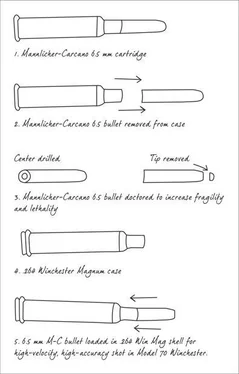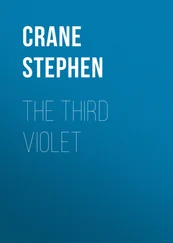Stephen Hunter - The Third Bullet
Здесь есть возможность читать онлайн «Stephen Hunter - The Third Bullet» весь текст электронной книги совершенно бесплатно (целиком полную версию без сокращений). В некоторых случаях можно слушать аудио, скачать через торрент в формате fb2 и присутствует краткое содержание. Жанр: Триллер, на английском языке. Описание произведения, (предисловие) а так же отзывы посетителей доступны на портале библиотеки ЛибКат.
- Название:The Third Bullet
- Автор:
- Жанр:
- Год:неизвестен
- ISBN:нет данных
- Рейтинг книги:5 / 5. Голосов: 1
-
Избранное:Добавить в избранное
- Отзывы:
-
Ваша оценка:
- 100
- 1
- 2
- 3
- 4
- 5
The Third Bullet: краткое содержание, описание и аннотация
Предлагаем к чтению аннотацию, описание, краткое содержание или предисловие (зависит от того, что написал сам автор книги «The Third Bullet»). Если вы не нашли необходимую информацию о книге — напишите в комментариях, мы постараемся отыскать её.
The Third Bullet — читать онлайн бесплатно полную книгу (весь текст) целиком
Ниже представлен текст книги, разбитый по страницам. Система сохранения места последней прочитанной страницы, позволяет с удобством читать онлайн бесплатно книгу «The Third Bullet», без необходимости каждый раз заново искать на чём Вы остановились. Поставьте закладку, и сможете в любой момент перейти на страницу, на которой закончили чтение.
Интервал:
Закладка:
Stephen Hunter
The Third Bullet
I think it’s time we stop, children, what’s that sound?
Everybody look what’s going down.
–“FOR WHAT IT’S WORTH,” BUFFALO SPRINGFIELDPART I
CHAPTER 1
Baltimore
The sidewalk before him bucked and heaved, blown askew by high winds howling through the night.
Oh, wait. No. Let’s edit that. There was no bucking and heaving. Ditto with the “blown askew” and the “high winds howling through the night.”
It just seemed so to Aptapton, because the winds that toyed with the stability of the sidewalk blew-“howled”-only through his own mind. They were zephyrs of vodka, and they’d substantially loosened his grip on the solidity of the little chunk of earth that lay between the bar he’d just exited and the house where he lived, a few hundred yards ahead.
Aptapton: alcoholic, writer, success, melancholiac, and gun guy, was in a zone that might be called greater than a buzz but less than a full staggering drunk. He was one sheet to the wind, you might say, happyhappyhappyhappy, as three vodka martinis will do to a fellow with only moderate capacity for drink, and what lay ahead, although slightly challenging, didn’t really seem insurmountable. After all, he had to walk only another few feet, cross the street, and then–
Digression. Pause for autobiographical interlude. It’s allowed when under the influence. One thing suggests another, and in this case the suggestion is appropriate.
The street was called Light, and that suggested a kind of hopeful conclusion to the evening. Light as in light of heart, light of spirit, light at end of tunnel, light as in amusing, fey, witty, light as symbol of hope and life. But also: Light as in Light for All, as a famous newspaper, located a mile or so up the very same Light Street, had proclaimed on a daily basis for 175 years or so, twenty-six of which he’d spent in its employ and where his wife to this day toiled.
Yes, he was that James Aptapton, minor local journo celeb who’d gone on to minor fame as a writer for money of hardcover books about gunfights and the stoic heroes who won them, and now he found himself at sixty-five improbably successful (in a small way) and awkwardly pleased to be himself. He had it all: beautiful wife, a couple of mil, a nice house in a fabulous part of town, a minor reputation (enough to take some pleasure in), a grand future, a munificent multibook contract, a really cool project ahead, and a lot of guns.
The reason for the three vodka martinis was liberation, not celebration. His wife was absent, ha ha ha, too bad for her. She was at some newsroom woman thing, birthday party, maybe – why did women take birthdays so seriously , by the way? – and so he’d wandered on his own to the nearby bistro, had a burger with a Bud and then V.1, which weakened his resolve to resist V.2, which shattered his resolve to resist V.3. Fortunately, there’d been no V.4, or he’d be asleep in the men’s room.
Now.
Where was I before digression?
What place is this?
Where am I now?
Ha ha ha ha.
Oh yes: home is the hunter. He. Was. Walking. Home.
The street slanted, then rolled. Ahead, it humped up, then dipped down to permit a view of the valley. It rocked. It rolled. It shook, it rattled, it coiled, it double-bubbled, boiled, and troubled.
He laughed.
Do you find yourself amusing? his wife always asked, and the truth was, yes, he did find himself amusing.
The mood, like the geography, chemically amplified by red potato crushed by kulak descendants, was quite good. That James Aptapton had been recognized. It happened. Rare, but not without precedent for your minor-league non-qual-lit celeb.
“Mr. Aptapton?”
Halfway through V.3, he’d looked up to see an earnest young fellow, possibly the assistant manager.
“I just wanted to say, I’ve read all your books. My dad turned me on to them. I really, really love them.”
“Well,” said Aptapton, “say, thanks so much.”
The young man sat and gushed Aptapton love for a bit, and Aptapton tried to give him a meaningful Aptapton experience. The transaction worked out well for both of them, in fact, and at the bottom of V.3, a pause in the praise gave Aptapton the time to gracefully excuse himself, bid Tom? maybe Jack? possibly Sam? good-bye and make his exit. So his mood was mellow and radiant. He’d cross Light Street here, and only the narrow alley called Churchill lay between himself and horizontality in bed, his destination.
The Russian watched from the stolen black Camaro parked on Light. This looked to be the night. He’d been stalking for three days now, in his patient, professional way, and part of his talent lay in understanding exactly when the arrangements favored him and when they did not.
Thus, a police scanner played out its truncated cop-speak ten-code and laconic locality identifiers, and it suggested no police presence here in the immediate Federal Hill area. Thus, it was late enough that the action in this night-town district had played itself out and the streets, though glistening with dew, were largely empty, and only periodic parties of drunken twentysomethings rolled this way and that. Thus, finally, the target had emerged, functionally reduced by alcohol intake and self-love, and bobbed his way along the street.
The Russian saw a man in jeans and a tweed coat with a pair of writer-like glasses, Trotsky out of Orwell by way of Armani or some such. You saw glasses like that in New York. The man had a round, pleased face, bearded after Hemingway and to disguise jowls, narcissism blasting out of him more powerfully than any other human attribute. Expensive shoes. Nice shoes. A well-turned-out fellow.
Barring the unforeseen arrival of some whimsical force that favors thriller writers above all others in the world, it was probably going to happen tonight. The Russian did not believe in whimsical forces: he believed only in the power of a fast car to break the spine of a poor unsuspecting fool like this one a hundred times out of a hundred times. He had seen it, he had done it, he had the nerve and the cool and the coldness of heart to do such damage without a lot of emotional involvement. He was a professional and well paid.
The target for tonight, joints loosened by the alcohol, managed to get himself across Light Street without falling. He navigated with that overcontrol typical of the drunk. Great forward movement, momentum building, but without the capacity of adaptation; he arrived at where he tended, not at where he aimed, and at the last, lurching moment, he bumbled through a sideways correction, a sort of exaggerated funny-walk bit.
All of this meant nothing to the Russian, who found nothing funny. He noted distances, angles, and surfaces as a way of computing acceleration rates into speed on impact. The Russian prosaically jacked two wires together in the torn-out key unit of the dashboard, and the beast of a car stirred to life. He was not showy or stylized, so there was no gunning of the engine to allow the horses under the hood to roar and the exhaust pipes to bellow steamy toxins. He eased into first, nudged his way into the empty street, and waited just a bit, because he needed at least three seconds of acceleration time in the alley to get to fifty miles per hour, which was the killing impact.
On either side, there was nothing but Baltimore. At the mouth of Churchill, a church to one side and a typical Baltimore row house meant for the miniature people of the 1840s to the other, Aptapton re-aimed himself and pressed onward down the concourse. It was listed as a street in city records but had been constructed as an alley many years ago, its tiny brick dwellings serving as servants’ quarters or backyard administrative units for the larger houses that faced outward to prouder, wider streets. For a hundred years this back way had probably been the province of pig and horse shit commingled with blood and Negro or immigrant sweat, where the invisible servers lived to sustain the opulent ease of those in the big houses. Then it became the inevitable slum, but that condition never quite went terminal, as the dwellings were too cute for demolition. Now, of course, gentrification had come in the form of museum-quaint cobblestones, which gleamed moistly as if at an art director’s bidding, little mock-gaslight streetlamps, lots of gardening and painting and each tiny building essentially remanufactured from the inside out, so that they had become nesting sites for the young urban hip. Aptapton,
Читать дальшеИнтервал:
Закладка:
Похожие книги на «The Third Bullet»
Представляем Вашему вниманию похожие книги на «The Third Bullet» списком для выбора. Мы отобрали схожую по названию и смыслу литературу в надежде предоставить читателям больше вариантов отыскать новые, интересные, ещё непрочитанные произведения.
Обсуждение, отзывы о книге «The Third Bullet» и просто собственные мнения читателей. Оставьте ваши комментарии, напишите, что Вы думаете о произведении, его смысле или главных героях. Укажите что конкретно понравилось, а что нет, и почему Вы так считаете.












